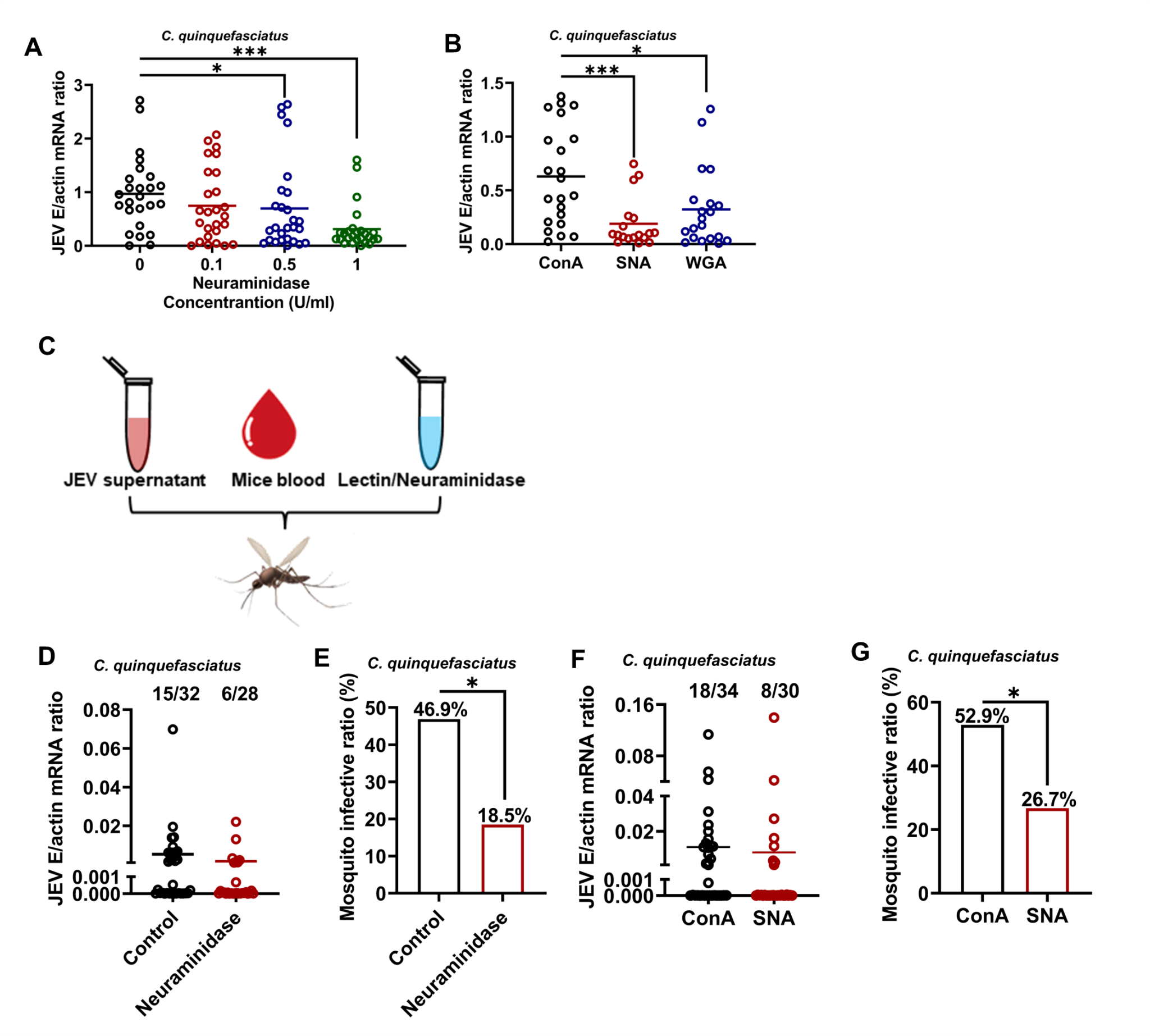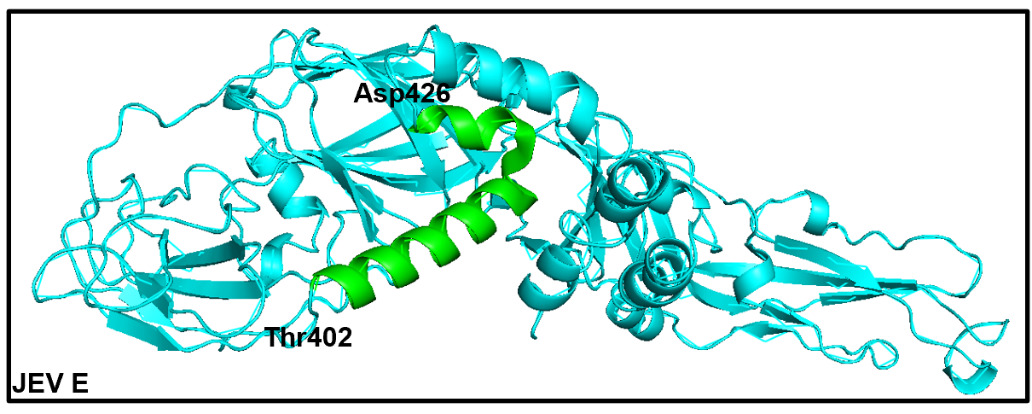
Research News
Research News
JVI | Sialic Acids as Attachment Factors in Mosquitoes Mediating Japanese Encephalitis Virus Infection
Recently, the research team led by Professor Senyan Du of the Swine Diseases Research Center, College of veterinary Medicine, published a paper in theJournal of Virology,which detailed the role of sialic acids in facilitating Japanese encephalitis virus (JEV) infection in mosquitoes. This study elucidates the mechanism that mosquito-derived sialic acids enhance JEV infection, contributing to a better understanding of the interaction between mosquitoes and JEV.
The Japanese encephalitis virus is a prominent mosquito-borne flavivirus that primarily targets the central nervous system of humans and the reproductive system of pigs, thereby posing serious threats to public health and the livestock industry.Culexspecies serve as principal vectors for JEV, however, the infection mechanisms of JEV within these mosquito hosts remain inadequately defined, warranting further investigation.
Sialic acids, which are prevalent in vertebrate hosts, play critical roles in viral infections by various pathogens, including influenza viruses, coronaviruses, and Zika virus. Although sialic acid modifications are present in mosquitoes, their specific contributions to viral infection process remain poorly understand. This study employed experimental approaches to examine the effects after sialic acid blockade on JEV viral load and transmission capability in mosquito models.the findings revealed that inhibiting the normal functions of sialic acids in mosquitoes reduced both the viral load and the vector competence. Furthermore, the study reveals that sialic acids facilitate JEV attachment to host cell membrane, promoting viral entry. Additionally, interactions between sialic acids and the terminal α-helix structure of the JEV envelope protein were also identified.

Figure 1. The impact of sialic acids on the infection of mosquitoes by the Japanese encephalitis virus.

Figure 2. Structural schematic of the Japanese encephalitis virus envelope protein.
This research identifies sialic acids as critical factors facilitating JEV infection in mosquito vectors, providing a theoretical framework for understanding virus-host interactions. These findings offer valuable insights for developing strategies to prevent and controlling mosquito-borne viral diseases.
Master’s student Chang Miao and doctoral student Yi He are co-first authors of this study, with Professor Senyan Du serving as the corresponding author. The research was funded by the National Key Research and Development Program for Young Scientists and the National Natural Science Foundation, among other initiatives.
For more information on the paper, please visit:https://doi.org/10.1128/jvi.01959-23






 028-86296382
028-86296382  No. 211 Huimin Road, Wenjiang District, Chengdu, Sichuan Province
No. 211 Huimin Road, Wenjiang District, Chengdu, Sichuan Province 